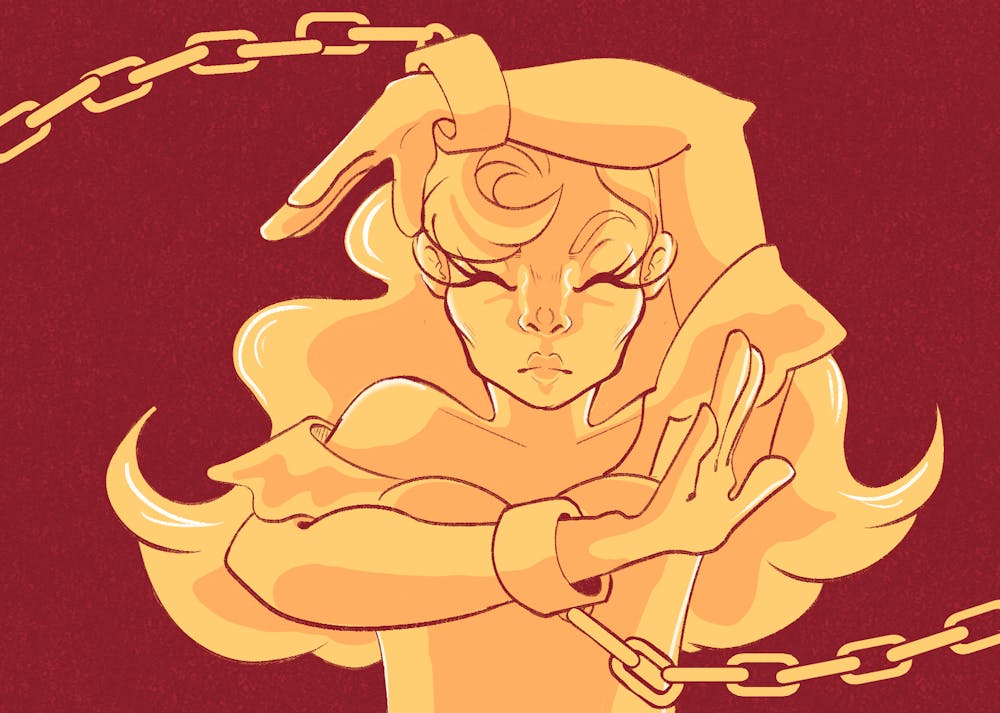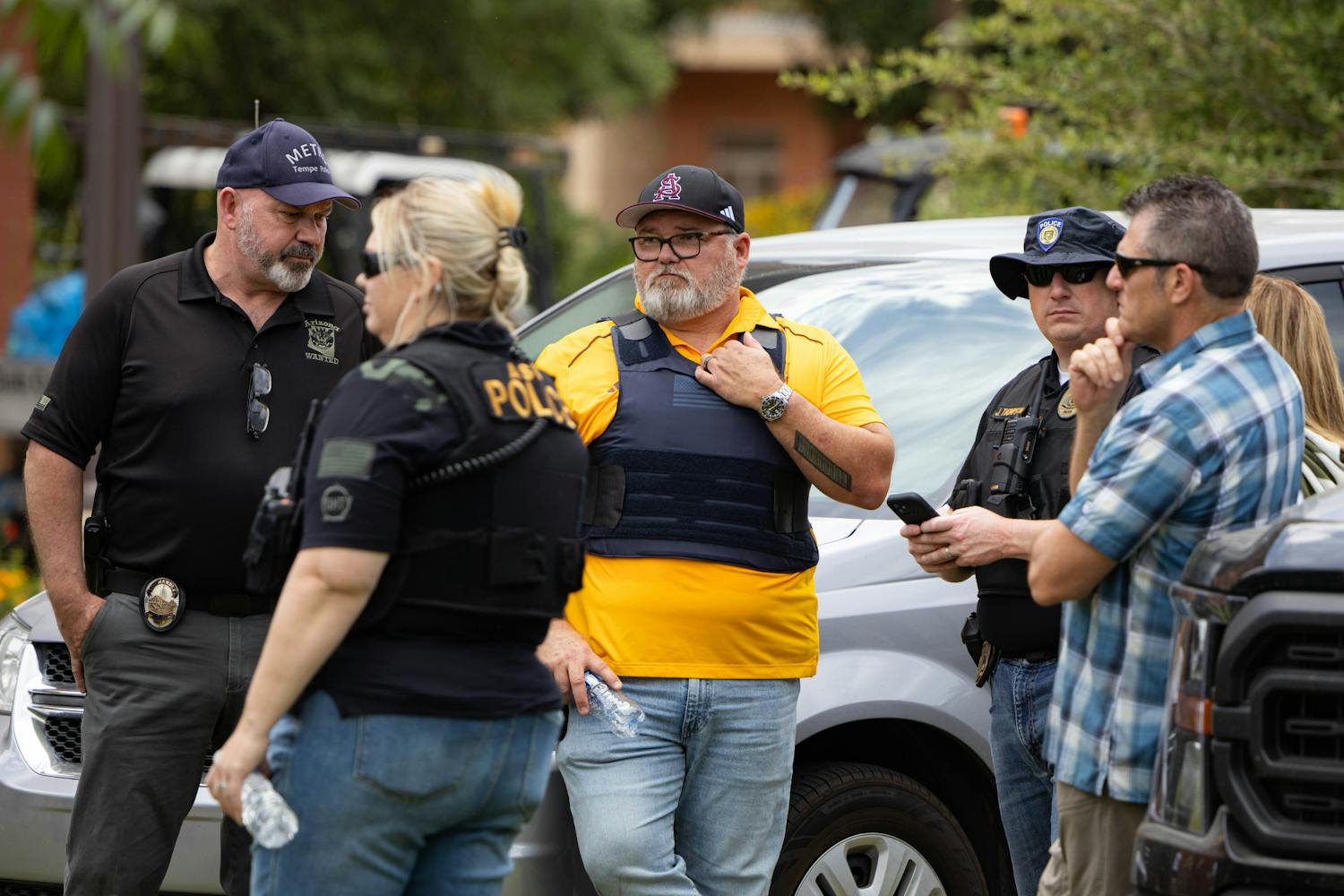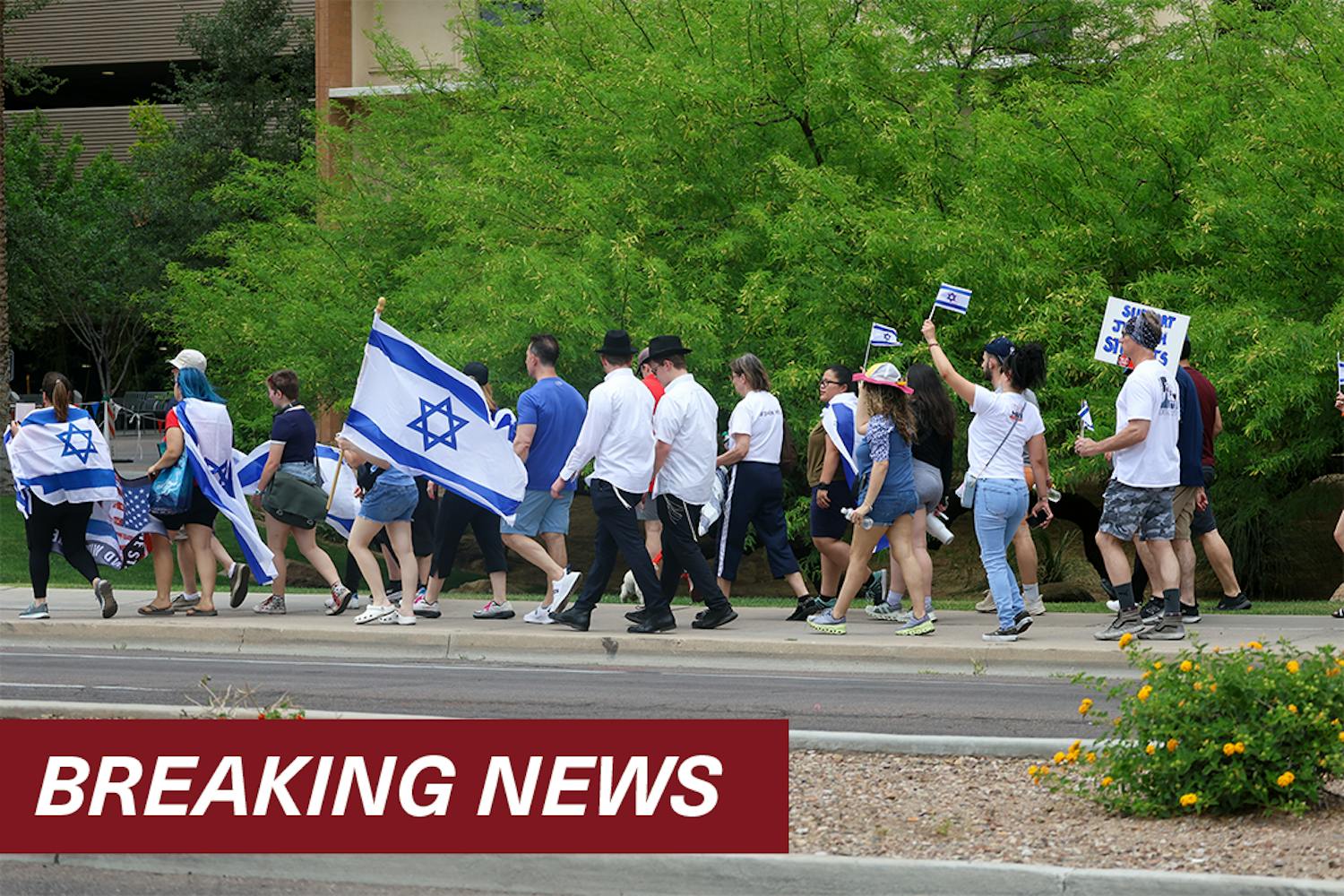Drag performances have been heralded as a hallmark of queer culture for decades, bringing people together. Used as a vessel for social justice, advocacy or entertainment, the art form is diverse and ever-growing. As drag has acquired more mainstream attention, though, it has also acquired more critics.
Recently proposed state legislation targets Arizona's drag community, which threatens the creative expression of ASU's LGBTQ+ students. These bills affect both drag performers and their audiences. By limiting this art form, the legislation is clearly aiming to limit the expression of LGBTQ+ identities.
"Drag" refers to the art form in which a person dresses in clothing and makeup to exaggerate femininity, masculinity or other gender expressions.
This session, Arizona lawmakers may vote on four bills, Senate bills 1026, 1028, 1030 and 1698. In all likelihood, these pieces of legislation will not make it past the desk of Gov. Katie Hobbs, who stated during a news conference on Feb. 2 she would veto them.
However, Hobbs should not have to spend her time in office vetoing bigoted regulations. Legislators should draft bills that could truly make a positive impact in Arizona. From the homelessness crisis to improving our public education system, there are several more important issues to address in Arizona than policing queer expression.
Senate Bill 1026, introduced by Sen. John Kavanagh, R-Fountain Hills, aims to eliminate the ability of state moneys to be used to fund drag shows performed for people under 18.
Senate Bill 1028, introduced by Sen. Anthony Kern, R-Glendale, wishes to go even further to abolish drag shows that target minors by banning people from engaging in adult cabaret performances on public property or in the presence of a minor.
Senate Bill 1030, also introduced by Kern, limits the times at which drag shows are allowed to be performed and requires permits for drag shows and performers. It also aims to categorize establishments where drag shows are performed as adult-oriented businesses.
Senate Bill 1698, introduced by Sen. Justine Wadsack, R-Tucson, and Reps. Rachel Jones, R-Tucson, and Cory McGarr, R-Tucson, aims to completely criminalize the act of performing drag in front of a minor.
In response, members of the LGBTQ+ community held a protest at the Arizona State Capitol on Jan. 22 to show disapproval of how the Legislature has treated them. If these bills are enacted, ASU students could be directly affected.
ASU's Downtown Phoenix campus LGBTQ+ group, Confetti, has plans to host a drag show on campus during Arizona Pride Week in April. Under SB 1026, anyone under 18 would not be able to attend drag events, Confetti's show included, and performances could not be held on public property. This event and others like it may be negatively impacted by the bills targeting drag.
"Censoring students who do drag and other drag performers is blatantly homophobic," said Sophie Warnock, a freshman member of Confetti majoring in fashion. "Queer students should not have their identities stifled by our government."
Throughout all four bills, eliminating the ability of minors to attend drag shows is a pervasive theme. At face value, this could be seen as an attempt to steer children away from humor used in drag that could be considered crude and vulgar. However, one must look at the ulterior motives shared by legislators when they proposed these bills. Proposing legislation to protect children from being exposed to age-inappropriate content is one thing. Using children as a scapegoat to incur homophobic regulations onto constituents is another.
"I find it upsetting that they are using children to try and criminalize drag," Warnock said. "Most drag shows are not even marketed to children in the first place."
SB 1030 says a drag show shall cannot occur between the hours of 1 and 8 a.m. on Monday through Saturday and between the hours of 1 a.m. and noon on Sunday.
Out of all the contents in the three proposed bills, this is the most blatant attempt to cut down on LGBTQ+ expression. My main issue is with the Sunday hours, which could very well harm the drag scene in Arizona.
Homophobia has no place in legislation.
Edited by Kate Duffy, Piper Hansen, Sophia Balasubramanian and Greta Forslund.
Reach the columnist at sgkrantz@asu.edu and follow @selma_krantz on Twitter.
Editor's note: The opinions presented in this column are the author's and do not imply any endorsement from The State Press or its editors.
Want to join the conversation? Send an email to opiniondesk.statepress@gmail.com. Keep letters under 500 words and be sure to include your university affiliation. Anonymity will not be granted.
Like The State Press on Facebook and follow @statepress on Twitter.




